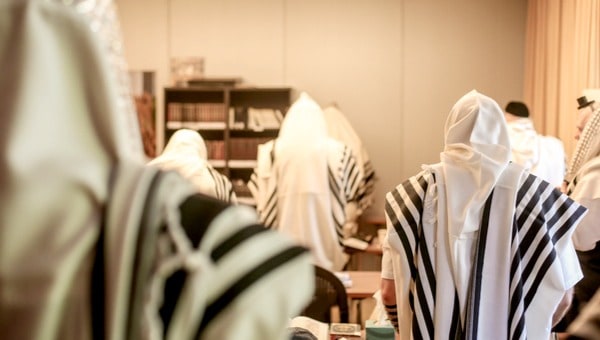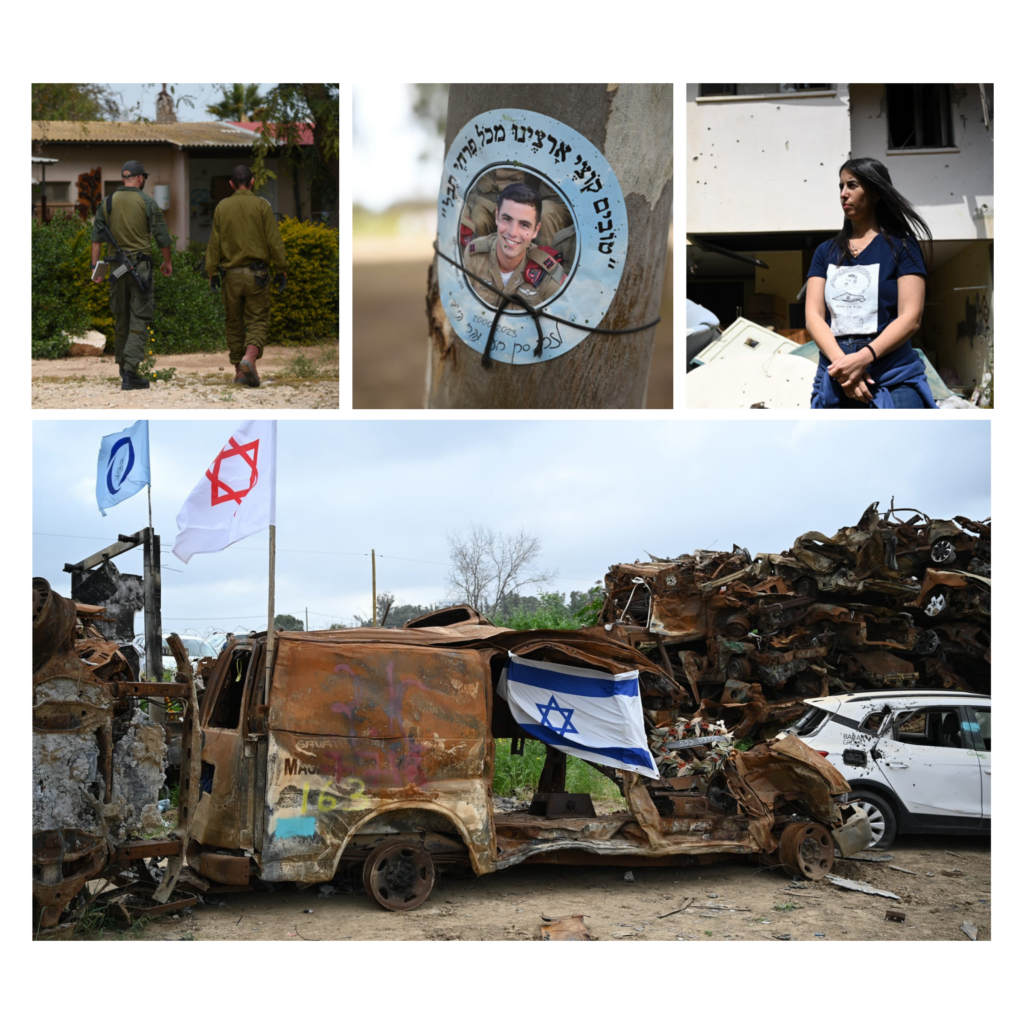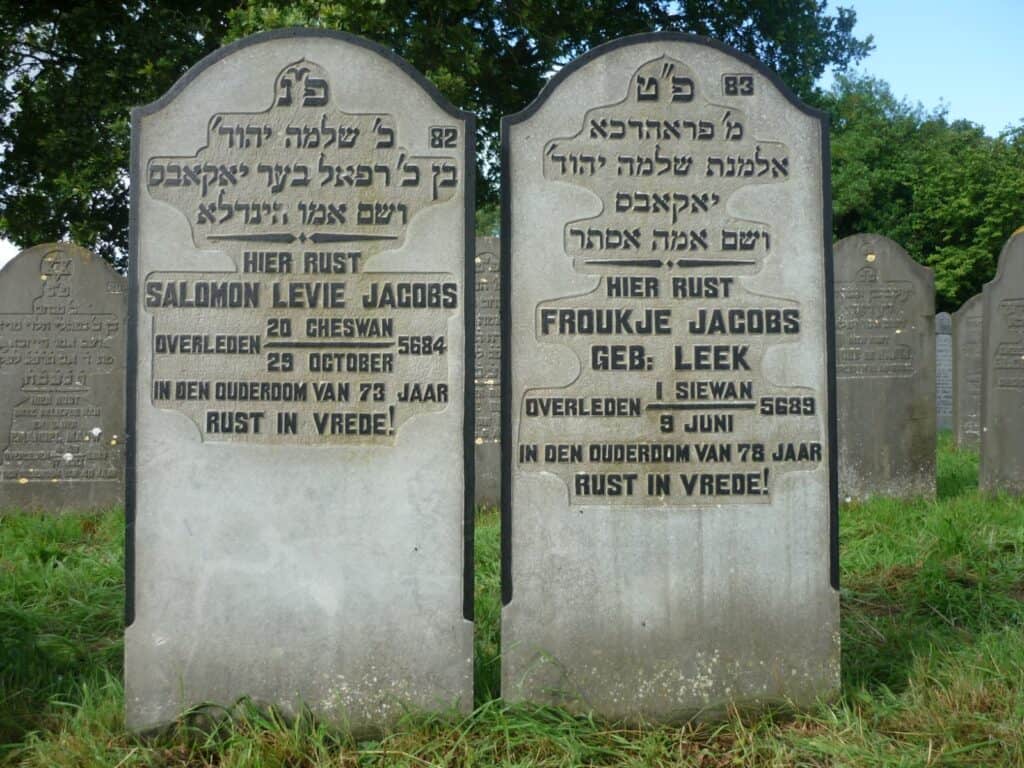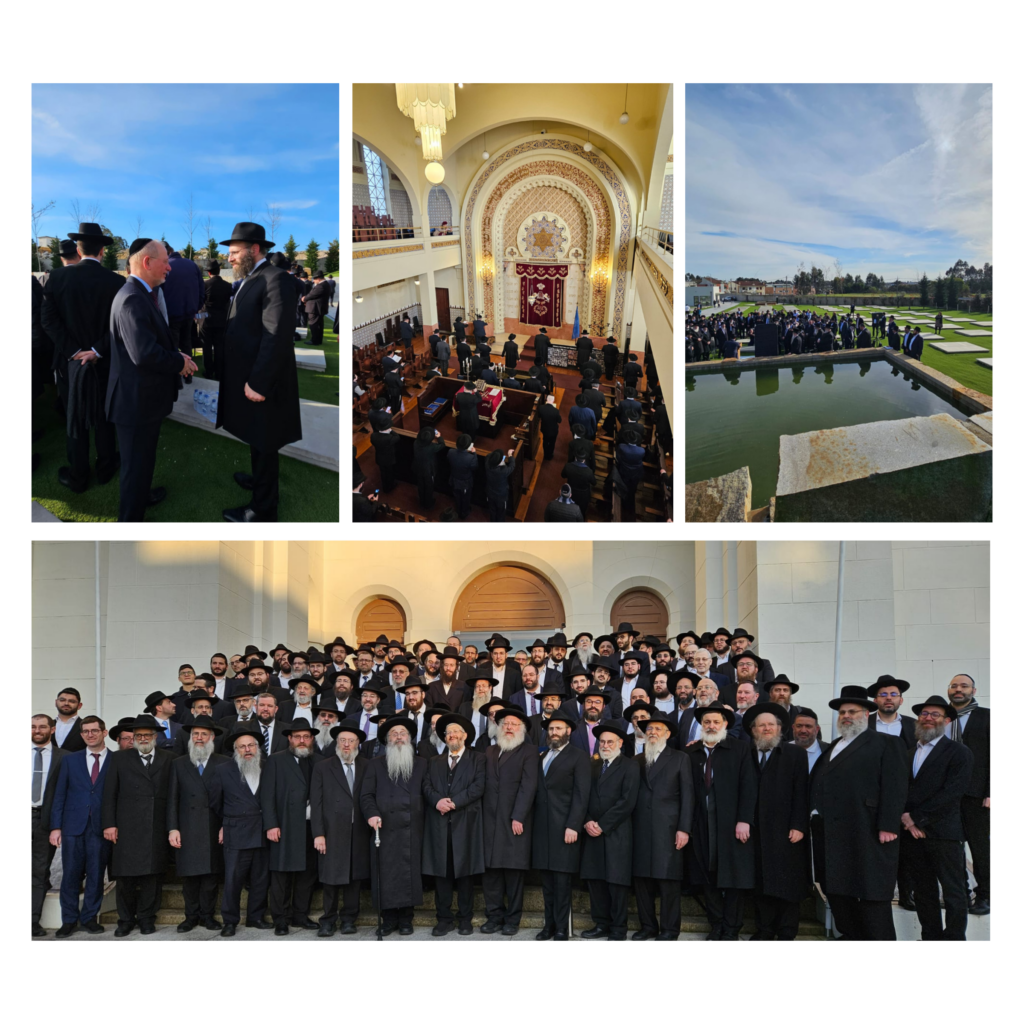Every Day during the Corona crisis our Advisory Board Member Chief Rabbi Binyomin Jacobs (NL) writes a diary, on request of the Jewish Cultural Quarter in Amsterdam, which is published on the website of the NIW, the only Jewish Dutch Magazine. Rabbi Jacobs is the head of Inter Governmental Relationships at the Rabbinical Centre of Europe. We will be regularly publishing a selection of his informative, sometimes light hearted, but always wise pieces.
For our Dutch readers you can follow the diary every day at NIW home page: https://niw.nl
“This message comes from Wollongong, Australia where we have a small Jewish community.
I wanted to ask you if Hijman Jacobs (1843-1872) might be in your family line? His great-grandchild who was once a student at our local university (~ 1970) is told that his great-grandfather was a Rabbi in Amsterdam. ” Thus the email I received this morning from Wollongong-Australia.
Never heard of a Rabbi Jacobs from Amsterdam, but what is not may yet come. I do not mean that I have ambitions to become the rabbi of Amsterdam, but it could just be that I have discovered an ancestor whose existence I did not know. Maybe he was not a rabbi and was only called a rabbi because he was a teacher. I am certainly not a descendant in the direct line, but perhaps he was a cousin of my father and therefore a real Jacobs. And if it is even slightly correct, I should definitely share that with Claire as well. Claire, I hear you ask. Who is Claire?
Claire and I share the same great-grandparents Salomon Levie Jacobs and Froukje Jacobs-Leek, who both passed away about a hundred years ago. About ten years ago we stood together in the cemetery of the Jewish Community in Muiderberg. We look alike and according to my wife have the same facial features. I also think that we both have mixed feelings about Aletta Jacobs with whom we both have the same family relationship. Proud of her commitment to equal rights for women and the prevailing discrimination, but we both also have difficulty with certain parts of her struggle / life vision in the field of ethics.
Claire and I are both from the orthodox core of the Jewish community. My dear caring and overprotective father has always told me that there must be one more person alive from the Jacobs family. A great-niece named Claire, granddaughter of his Aunt Bella, his father’s sister. My grandfather Jacobs had a sister and three brothers. All murdered with children, children by marriage and grandchildren. A cousin, Sampe, had survived the war but lost his wife and child in one of the camps. He was the only member of Jacobs’s side at my parents’ wedding in 1948. Sampe, my father told me, was deeply depressed and remarried a woman from Manchester. A girl is born who is named Claire. Sampe dies shortly after birth. Claire’s mother remarries. With whom and where my father did not know. But I have not forgotten the name Claire.
About ten years ago I received a phone call from the Jewish Community of The Hague. A certain Claire is looking for her origins. She lives in Melbourne. I didn’t have to think long, took the phone and talked to Claire, my grand-niece, the only still alive Jacobs. She wanted to know who her grandparents had been and also details about her father. Her mother had been married to him for only a short time and, in fact, knew very little about him. Because my father was on the verge of dementia at the time, I told Claire that if she wanted to hear more details from my father about her grandfather and grandmother, she should come now. And so I met Claire a week later. That feeling was very special. Even now, when I think back, tears come to my eyes. My grandfather and her grandmother were brother and sister. After she met my father, we went to Muiderberg together and stood before the graves of Salomon Levie Jacobs and Froukje Jacobs-Leek, our joint great-grandparents. Claire was raised by her mother and second father. But she was not told that her stepfather was not her real father. That stepfather never distinguished between Claire and the children born later. Mother and stepfather did not want to burden her with the real father who was no longer there.
Whether that was ethically correct or incorrect is no longer relevant. So her mother and stepfather had decided with the best of intentions in the world. Two weeks before her chuppah wedding, they told her husband-to-be that Claire’s real father is no longer alive. He, the husband-to-be, wanted Claire to find out, too, but because of the potential emotional blow, they decided to wait until a week after the wedding. She heard it, absorbed it, processed it emotionally, but did nothing with it. She was just married, building a family, then children … and then, ten years ago, when the children had left home and she and her husband had the wealth to themselves, she wanted to know: “Who were my grandparents and who was my father? ”
I was able to find someone who knew her father very well. We found the graves of her father’s parents and we found each other. Actually, we are just distant relatives, two people who had never met each other before. But we are both descendants of the same great-grandparents, we live in their footsteps, are both known to be the only survivors of that large Jacobs family. We both thanked G-d for being allowed to stand there together in the cemetery of the Jewish Community of Amsterdam, because we realized that most of the graves in the Jewish cemeteries will never be visited by anyone, because there is no one left. And while I was close to closing my diary, I received an email invitation from Claire to the chuppah of one of her grandchildren on January 5th in Monroe New York.
And now that e-mail from Wollongong, Australia. Maybe another Jacobs will turn up after all: Hijman Jacobs. I’m waiting!














